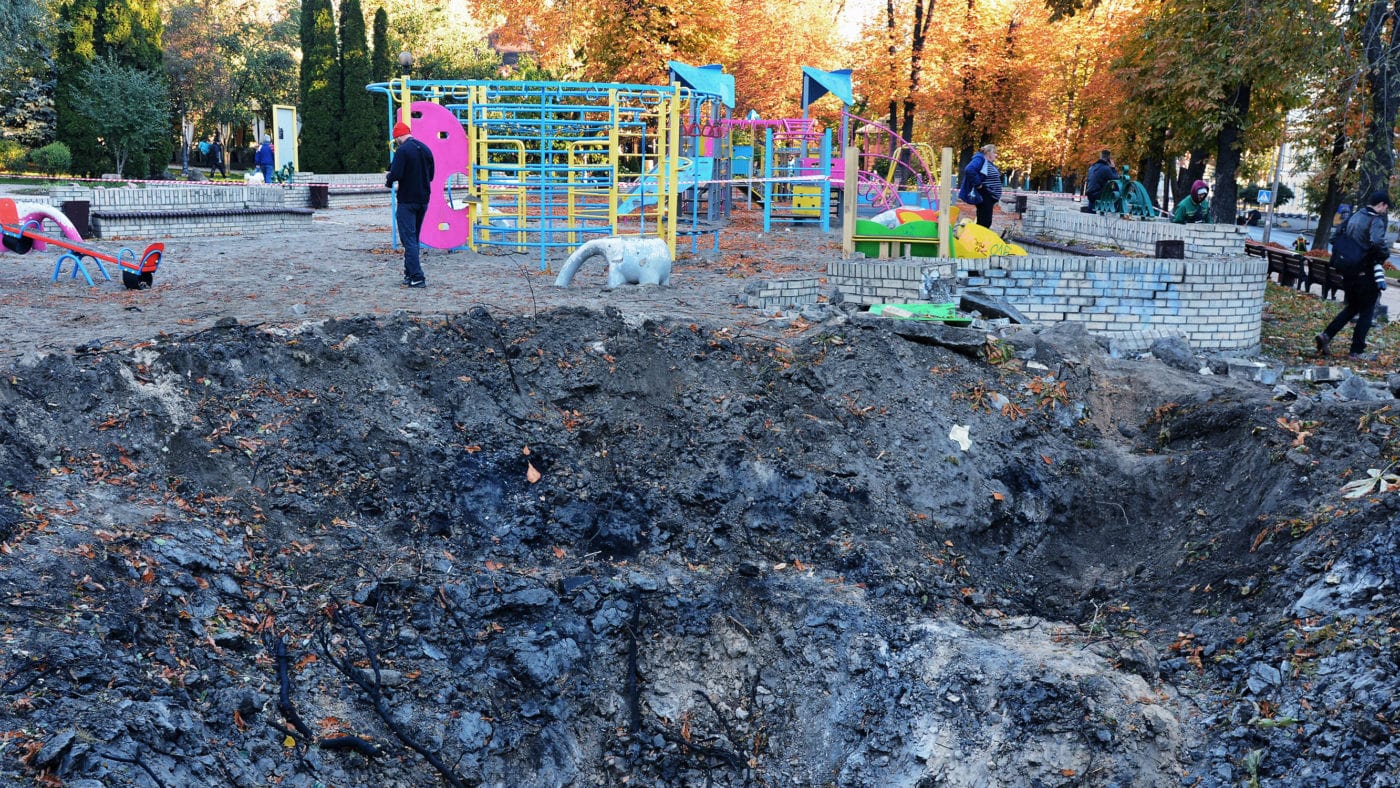Across Europe, a rather under-reported trend has been gathering pace: parliament after parliament have been declaring the Russian Federation a ‘terrorist state’.
It started in August when the Latvian Parliament passed a resolution, swiftly followed by Estonia in October and, by the start of this month the Parliamentary Assembly of the Council of Europe had joined them. This week the Nato Parliamentary Assembly passed a similar resolution, and now, perhaps most significantly, the European Parliament has done likewise.
Whilst these resolutions might seem to be purely symbolic, they are far from a token gesture. Why? For the simple reason that counter-terror legislation is far stronger than conventional sanctions.
A decade of fighting the War on Terror has equipped the West with an arsenal of geopolitical tools to go after state sponsors of terrorism, their financiers and their hidden assets abroad. The legal and financial mechanisms once used to go after ISIS, al-Qaeda, and the Taliban can now be turned on the Russian Federation and its proxies.
The case for designating Russia a sponsor of terrorism is quite clear. The Kremlin has, in every sense, committed terror against the people of Ukraine. Indiscriminate bombings of schools, hospitals, shops, and civil society centres that have been carried out by the Russian armed forces have been done so with the explicit intent to frighten and disrupt the lives of ordinary people. The recent attacks on Ukrainian energy infrastructure have equally been a part of a deliberate policy of freezing people into submission.
And just like the Islamic State, Russia’s armed forces have taken to looting sites of cultural significance and museums, in order to sell off plundered antiquities. Even more cynically, some troops have taken to stealing household appliances – packed on to the back of armoured vehicles and driven back to Russia to be sold on.
This isn’t just about this year’s escalation, however. Since 2014, Russian has supported the separatist terrorists of the so-called ‘Donetsk Peoples Republic’ and ‘Luhansk Peoples Republic’, supporters of whom have been responsible for bombings in major cities such as Odessa, Kharkiv and Kyiv.
Nor is Russia’s murderous activity confined to Ukraine. Moscow has supported acts of terror in the Central Africa Republic via the notorious mercenaries of the Wagner Group – including the extra-judicial killing of three Russian journalists who were investigating their involvement in the region. There are also suggestions Wagner were involved in the execution of civilians in Mali, something the UN has considered formally investigating.
So what comes next? One of the key points is that terrorist sanctions will allow Western nations to seize Russian assets, whereas the conventional ‘Magnitsky Measures’ only allow them to be frozen. What a state does once it has seized assets from a terrorist group is at their own discretion – but one tempting option is to put the proceeds of any sales into a dedicated fund to help the Ukrainians. Doing so would then open up a new opportunity for funding Ukraine’s war effort, literally using Russian assets in the West against them.
Another area where counter-terrorism measures enable greater action is on money-laundering – an area that has attracted a lot of attention since the start of the conflict, especially when it comes to Russian oligarchs hiding money in the West.
Above all, freedom-loving countries should be using every weapon in our arsenal to bring Russia’s murderous adventurism to a halt. The UK could strike a blow by becoming the first major world power to designate Russia a sate sponsor of terrorism – and in doing so put to use some of the toughest counter-terrorism measures in the Western world.
Click here to subscribe to our daily briefing – the best pieces from CapX and across the web.
CapX depends on the generosity of its readers. If you value what we do, please consider making a donation.


